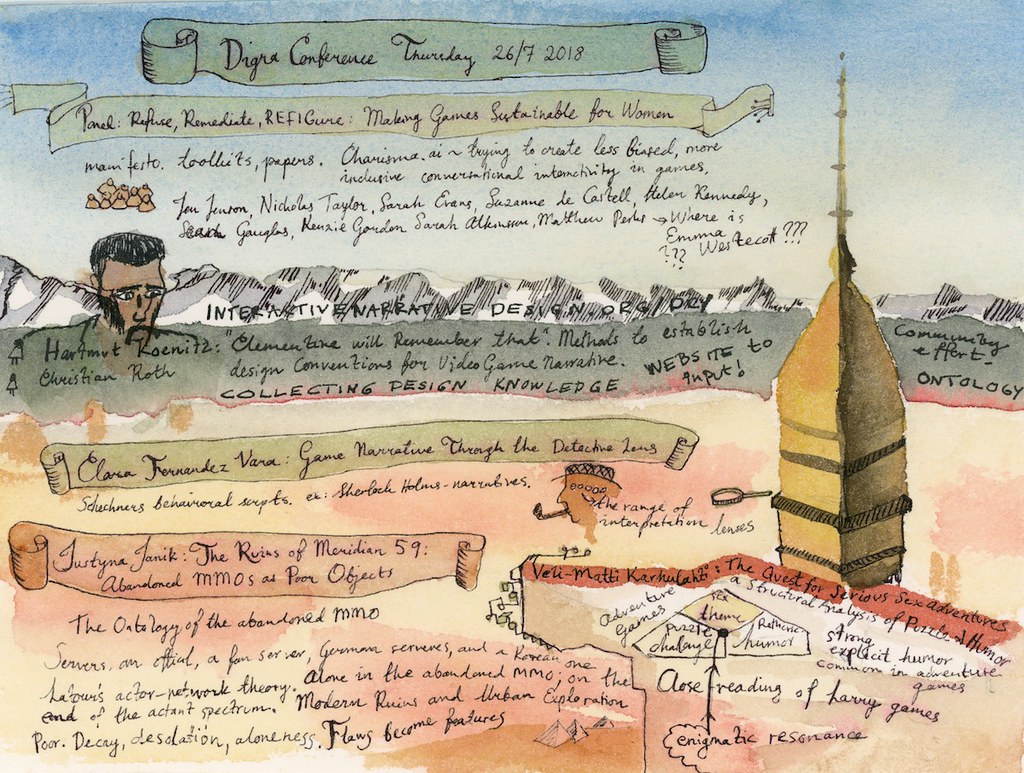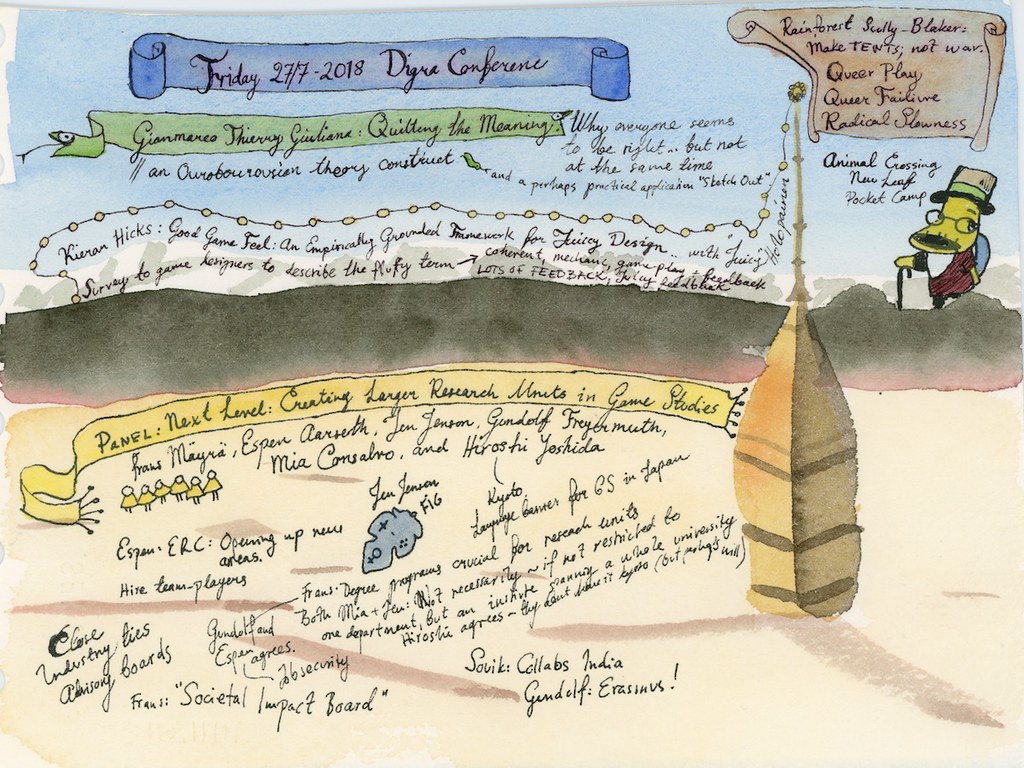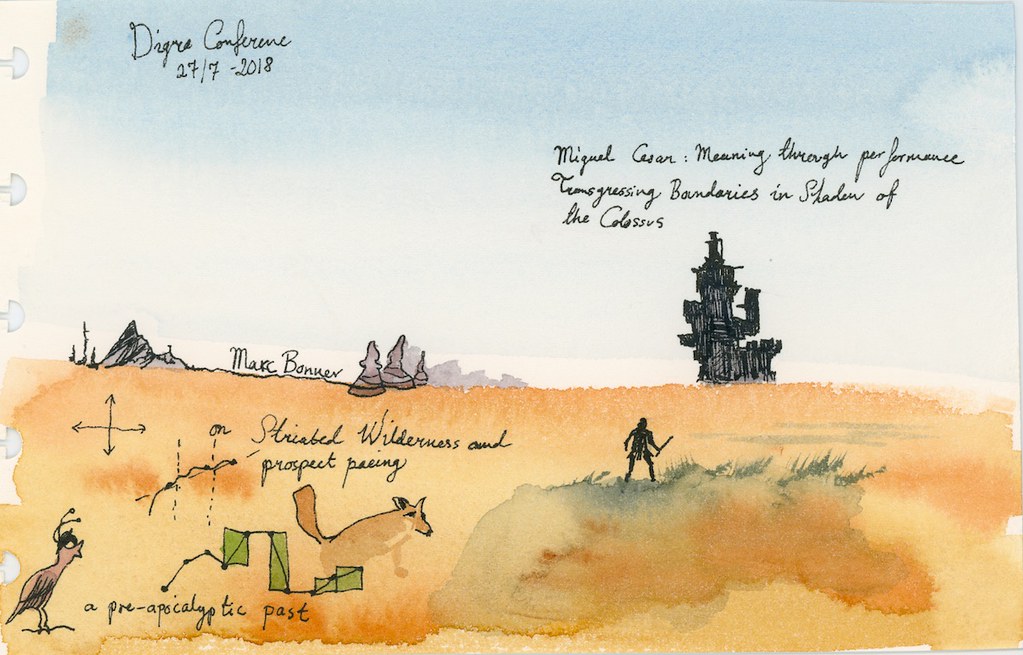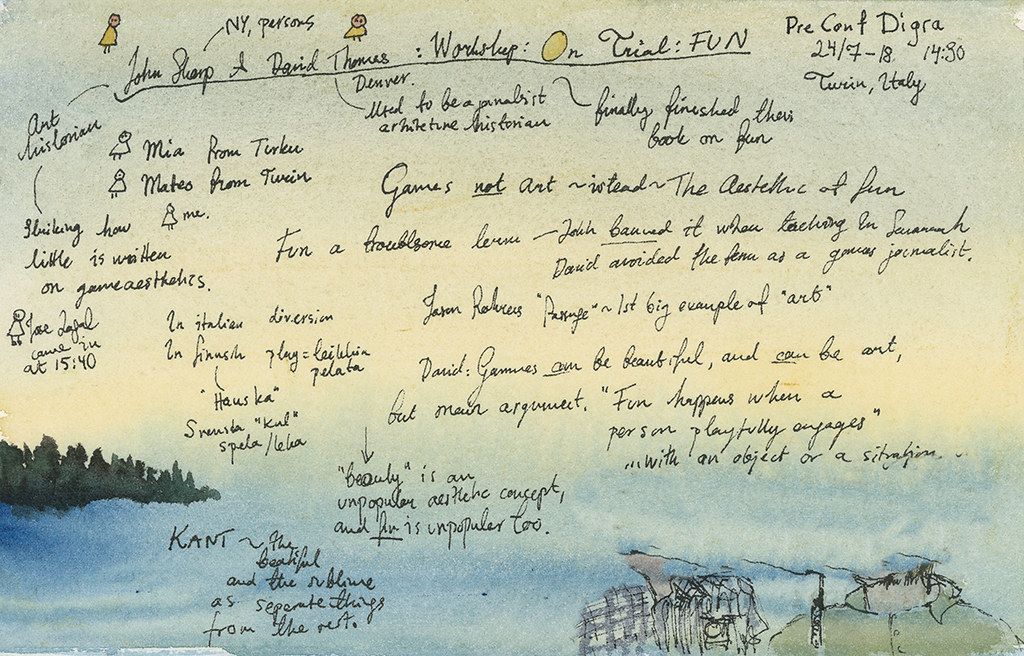2 Day Symposium: HEVGA European Symposium at Gotland Game Conference 2018, 5-6 June, Gotland, Sweden
Here’s a quick write-up on the HEVGA Symposium we had a few weeks ago in Visby!
We were around thirty game scholars who gathered in Visby, in junction to the Gotland Game Conference, to discuss higher education in Video Games during a two day symposium arranged by the fabulous Ulf Benjaminsson and Adam Mayes. The first day was dedicated to talks on the topic. During that first day, we had plenty of time for discussion in breaks and at meals, so that we, on the second day, could form workgroups.
The overarching aim of the second day was to explore what we as a group would find most important to gather around for advancing the state of higher education: how can we support each other in the long run, and what can we start doing right now? Jonathan Elmergreen and I had prepared some topics, but encouraged to have breakout-groups so that as many voices as possible would be heard. Each group got a small template to use for notes, so that we in retrospect easily can summarise the main outcomes of the discussions.
We had four work groups:
- ERASMUS exchanges, led by Jonathan Elmergreen and Alvin Sullivan
- Industry cooperation, led by Adam Mayes,
- The nature of Games, led by Stephen Bachelder, and
- Post-grad research education, led by myself.
The ERASMUS group
ERASMUS is a European program that allows and funds students and teachers to spend time at another European university for limited periods of time. Universities need to have one-to-one agreements between each other for the exchanges, and normally there is administrative staff that help with the paper-work.
The group discussed how to start a mapping of universities, both for courses that could be available for our students, and how to find and create new partnerships within the Erasmus programme. A potential starting point could be for us to pin-point what courses we each have that are available in english, and that may be able to work as a module in other games programmes.
Industry cooperation group
The industry group discussed how to engage with industry specifically by
- Internships,
- education, and
- employment
The Nature of Games group
The Nature of Games group stated that Games are intrinsic and essential to what it means to be human. They also stressed that we need to take a less apologetic position, and that it should definitely be considered an art form. This led to a group discussion in the wrap-up where we considered the angle of *why* it would even have to be called art, paraphrasing Zimmerman: why the need to call ourselves anything else than it is - eg why would games not just be called games, being legitimate in its own right?
Post-grad research education
Since I was in this group I can give some more detailed notes on our discussions. The reason I wanted to have this conversation is because I find it important to find better structures to ensure that there is a regrowth of researchers in the area of games in Europe. This comes from this springs work with students at Bachelors level who are stating, strongly, that “I want to become a games researcher. It is what I want to do with my life.” As it is, there are a few routes that can can be taken, but they are by no means obvious.* This is potentially a huge discussion, and it was beyond the scope of what we knew we could achieve during the hours we had together. Instead we explored what we could do, us in that very room, immediately.
We planned an annual European summer school for game studies/game design that changes place every year and is build on collaboration, sharing costs, and sharing teaching responsibilities.
Patrick Prax and Henrik Warpefelt of Uppsala University volunteered to take a lead on this.
Arash Källmark and Robert Brännström of the Luleå Technical University welcomed it to be held at their campus (in 2020), and so did Lissa Holloway-Attaway and Björn Berg Marklund of Skövde University. Lissa and Björn also welcomed us to have a follow up on this in junction to the Swedish Game Conference in October this year! It could also be a possibility to have it Slovakia. Zdenko Mago, Michal Kabát, and Martin Solík in Trnava have a game master’s there since 2015, and have just started a PhD programme.
Another topic we talked about was the lack of immediate publication and discussion venues for pedagogical method in higher education in the area of games. The latest one we could source/remember in our group was the Fishbowl workshop that Mia Consalvo organised at DiGRA2015.



